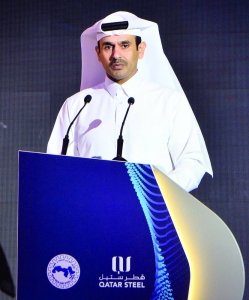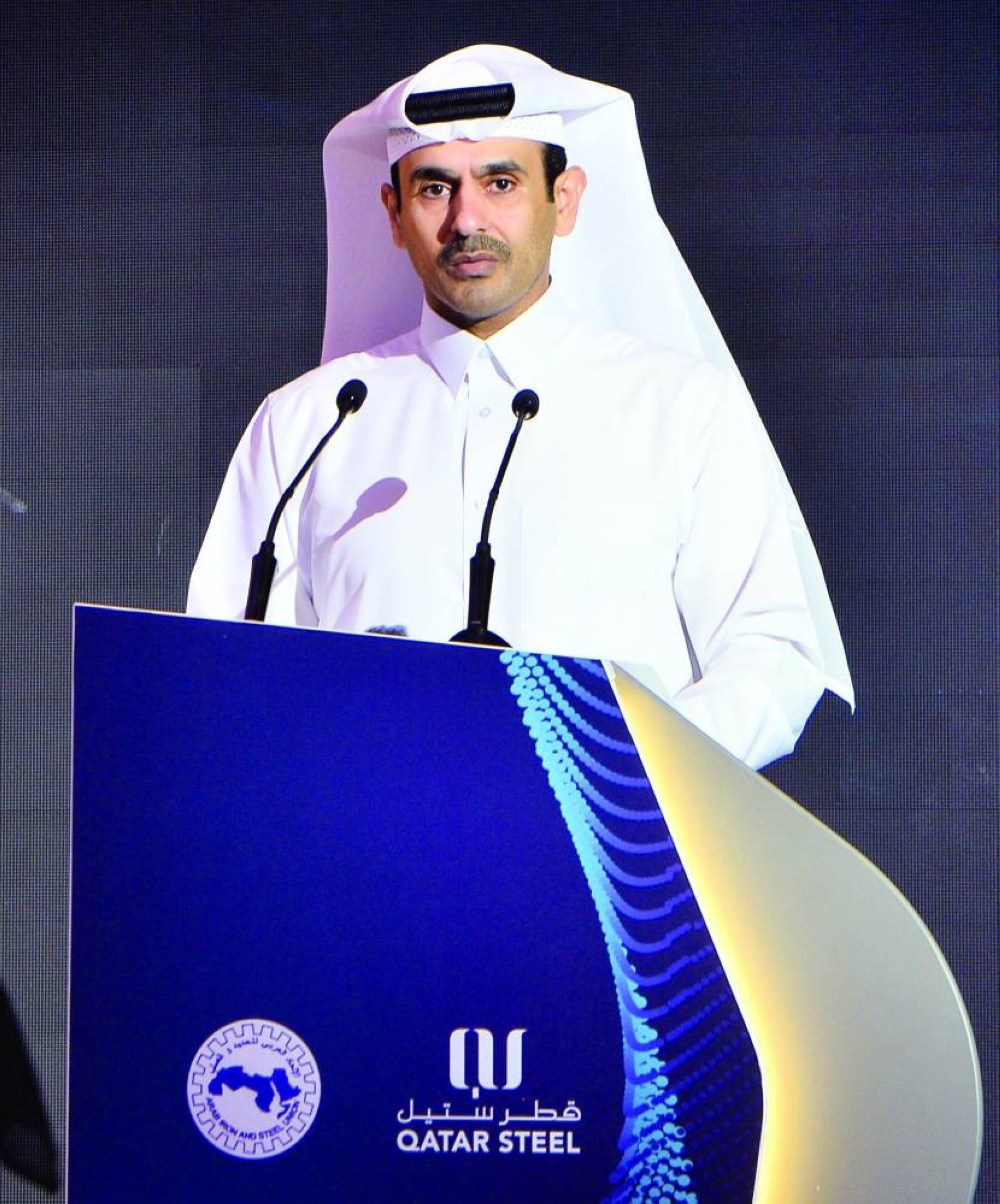Arab steel industry needs to reinforce position in global markets; additional investments and innovation crucial: Al-Kaabi


“This year witnessed a strong demand for steel across the region, driven by big infrastructure projects and a robust real estate market. However, Arab countries produce around 40mn tonnes of iron and steel annually out of a global production of around 2bn tonnes,” HE al-Kaabi told the summit in the presence of Arab Iron and Steel Union (AISU) chairman Awwad al-Khaldi and its Secretary-General, Dr Kamel Djoudi.
This (lower production vis-à-vis global output) highlights the challenge to enhance (the Arab region’s) position on the global map and to stimulate the growth of the industry and enhance its competitiveness on all levels, HE al-Kaabi added.
Stressing the need to find proper solutions to strike a balance among economic, social and governmental goals, particularly on lowering the carbon footprint, which is the cornerstone of all sustainability strategies; he said Qatar Steel, since 1978, has maintained a low carbon footprint, thanks to the use of the Midrex technology and use of electrical arc ovens, which lowered carbon dioxide emissions to less than 50% of the global average.
The Arab steel industry must dedicate special interest to investing in advanced technologies and the innovation culture because the future belongs to those who are able to invest in research, development and AI (artificial intelligence) processes, he said.
Finding that the world has seen a rise in demand on iron and steel across the region, owing to mega-infrastructure projects and the booming realty market in several Arab capitals and cities; HE al-Kaabi said the strategic value of the iron and steel industry is rising as the requirements are increasing in order to boost development and advancement.
The event, organised by the AISU under the theme, ‘The Future of the Iron and Steel Industry in the Arab World’, saw HE al-Kaabi and al-Khaldi jointly inaugurate the International Iron and Steel Exhibition.
“The steel industry plays a pivotal role in the economic development of the Arab region. Its importance extends beyond providing a fundamental building material to driving industrialisation, creating jobs, and enhancing energy security. A strong and competitive steel industry is essential for the region’s sustainable growth and prosperity,” AISU said.

